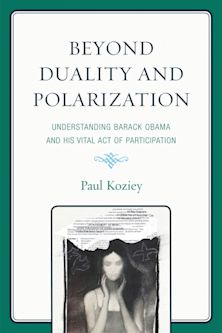- Home
- ACADEMIC
- Psychology
- Personality & Individual Difference
- The Voice of the Other
This product is usually dispatched within 2-4 weeks
- Delivery and returns info
-
Flat rate of $10.00 for shipping anywhere in Australia
You must sign in to add this item to your wishlist. Please sign in or create an account
Description
This work introduces the concept of the Voice of the Other and the intersubjective world it creates for humans. The unconscious processes of speech and language are deeply identified with the ego. In the movement from nature to civilization, the newborn is mastered by language and becomes part of the social world of his parents. The child's thought is now structured by parental language and speech as well as by memories stored in the unconscious. What is real for the individual is composed only of the images and words that define them. Even family and school relationships are structured in language and the social formations that language created in the past. The imaginary and symbolic functions of the mind form ideologies that bind people together and help them to make sense of their world. In schools this leads to submissive students and constant teacher-student conflict.
The author uses the works of Freud, Lacan, and Marx to situate schooling in capitalist society. He employs psychoanalytic, linguistic, and anthropological perspectives in an attempt to discover how we think and communicate with one another using unconscious processes.
Table of Contents
Acknowledgments
The Voice of the Other: An Introduction
Language and Thought
Language and Kinship Structures
Reproduction
The Function of Language in Pedagogic Work
The Imaginary World of the Classroom
Problems and Possibilities
Notes
Selected Bibliography
Index
Product details
| Published | 30 Nov 1992 |
|---|---|
| Format | Hardback |
| Edition | 1st |
| Extent | 192 |
| ISBN | 9780275943585 |
| Imprint | Praeger |
| Dimensions | 210 x 140 mm |
| Publisher | Bloomsbury Publishing |



































